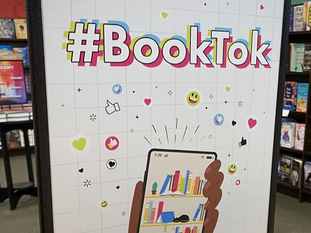
Why Self-Publishing Will Take the Lead: A Glimpse into the Next 5–7 Years of the Publishing Industry
4 min de lectura

The publishing industry is notoriously difficult to predict. It requires meticulous planning, especially given the high costs involved in running a publishing house. But forecasting market conditions, consumer behavior, and financial outcomes is far from an exact science. Books whether we love to admit it or not are a commodity. And in times of economic crisis, if consumers have to choose between spending $15 on food or a book, food will (understandably) win most of the time.
But let’s set aside the economic landscape for a moment the production costs, importation challenges, and operational overhead. Let’s talk about what really matters: the content, the authors, and the future of books.
The Brewing Storm: AI, Self-Publishing, and Creative Freedom
While publishing house executives are preoccupied with logistics and bottom lines, another storm is brewing. It’s the rise of AI, the empowerment of self-publishing, and the increasing desire among authors for creative freedom.
Right now, the publishing market is largely dominated by romantasy, a fusion of romance and fantasy which caters primarily to women, the industry’s most loyal and powerful consumer base. That market focus tells you two things: who holds the buying power and where the industry's attention lies. But it also reveals a weakness.
Because of this trend, publishing houses are actively acquiring authors who fit the romantasy mold. However, there’s a catch. Many of these authors are asked to emulate the voice and tone of the house's existing bestsellers, losing their uniqueness in the process. To be a bestseller, they’re expected to sound like a bestseller. This demand for sameness is pushing authors away. And many are starting to realize that their voice and ownership over it is worth more than the prestige of a traditional deal.
And it’s not just happening in fiction.
Across All Genres, Voice Is Being Molded
Whether you're writing fiction, nonfiction, memoir, business, or spiritual content, the pattern is the same. Publishing houses across all categories tend to mold new authors into the image of their current top performers. Betting on a fresh voice is a long-term investment with uncertain returns, and many publishers are not willing to wait years for that voice to mature and become profitable.
Instead, they lean into what’s already worked, encouraging (or requiring) authors to replicate the style, tone, and formula of proven bestsellers. It’s a safer financial play, but it’s also creatively limiting. As a result, many talented voices never make it through the traditional gatekeeping process or they choose not to.
How AI is Reshaping the Editor’s Role
AI is becoming a game-changer especially for authors who know how to use it well.
While traditional editors often align with the publishing house's vision (and at times, prioritize the publisher’s strategy over the author's voice), AI has no agenda. It serves whoever is working with it making it one of the most powerful tools authors have today.
When used intentionally, AI can help writers refine their ideas, enhance clarity, maintain consistency, and even expand the depth of their work all while keeping their voice fully intact. In fact, it can be so effective that even the best line editors may struggle to add significant value beyond what the author has already achieved using AI.
AI doesn't dilute an author’s voice it amplifies it. It adapts to their tone, their rhythm, and their message. It becomes a creative partner, not a gatekeeper.
The Rise of the Independent Author
Given this shift, I believe we’re about to witness an explosion of independent authors unlike anything we’ve seen before. In the next 5–7 years, more writers will choose self-publishing not as a second option but as the first and preferred path. They’ll realize that the trade-off between upfront investment and long-term ownership is worth it. They’ll get to keep 100% of their profits, set their own timelines, and most importantly, stay true to their voice.
Traditionally, being with a publishing house has meant prestige. But prestige is losing its power. Authors today are prioritizing creative control, ownership of their audience, and the freedom to build their careers on their own terms.
The New Challenge for Publishing Houses
Meanwhile, publishing houses will be faced with a difficult decision: evolve or get left behind.
They can either:
Bet on a broader range of unique voices and take more creative risks, or
Continue playing it safe, publishing five “sure bets” that all sound the same, while ignoring a hundred potentially groundbreaking authors.
And even then, they can’t promise priority to every author. Unless you’re a #1 bestseller, most publishing houses only invest in your book’s marketing for 1–3 months. After that, you're expected to carry the load promoting the book, engaging readers, and driving sales.
Ironically, this is something self-published authors are already doing from day one. But the difference? They’re doing it on their terms and keeping the profits.
The Industry Will Shift
In the years ahead, publishing houses will need to shift their approach. They’ll have to offer real value, not just prestige. They’ll have to compete for authors, not the other way around.
And if they don’t?
Independent authors will continue to rise, audiences will follow them directly, and the industry at least the way we’ve always known it will transform into something more diverse, dynamic, and author-led.






